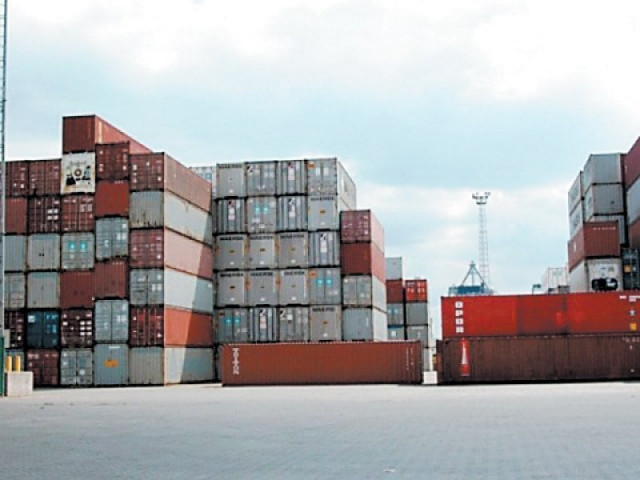Govt wants to freeze expenditures
Finance ministry proposes ceilings on expenses of most ministries in next budget

The government has proposed a freeze on current expenditures of a majority of departments and ministries in the next budget, indicating only a 1.3% average increase in their allocations, excluding the impact of a likely 20% rise in salaries.
“The average 1.3% increase too is on account of increments that government employees get during the middle of a fiscal year,” a top finance ministry official told The Express Tribune.
But still there are a few departments that will get a double-digit increase in budget - like the judiciary.
“It has been proposed to freeze all operational expenditures at their current levels,” the senior ministry official added.
The government is considering announcing the budget on June 11, which will be the fourth budget of the ruling party, the Pakistan Tehreek-e-Insaf (PTI).
The estimated size of the budget is around Rs8 trillion and the overall budget deficit will be over 6% of gross domestic product (GDP) as Finance Minister Shaukat Tarin is now considering setting the FBR tax target above Rs5.5 trillion.
Tarin seeks time to present budget
The Ministry of Finance has conveyed budget ceilings to about four dozen government ministries and attached departments. Except for less than a dozen ministries, the proposed allocations are on average higher by 1.3%, said the official.
However, the judiciary is expected to get about 11% increase from its current budget, which includes superior and lower courts, said the officials.
The Benazir Income Support Programme (BISP) may be given Rs250 billion in next fiscal year 2021-22, higher by 25%. But the BISP budget is treated as other development expenditures.
The Ministry of National Food Security and Research is also expected to get 8% higher budget in the next fiscal year. The Ministry of Foreign Affairs is proposed to be given 5% higher allocation, although its performance remains poor, inviting criticism from the prime minister.
The Higher Education Commission and federal educational institutions will also get higher budgets in the next fiscal year, partially because of a condition of the International Monetary Fund (IMF) to increase spending on education and healthcare by the federal and provincial governments.
Sources said that the finance ministry was proposing about Rs100 billion block allocation for covering the cost of increase in salaries of civil servants and armed forces, and for pensions.
The additional financial impact of the increase in salaries is not made part of the regular current budget ceilings. The government is considering giving 15% to 20% increase in salaries as the disparity reduction allowance in the next budget. About two-thirds of Rs100 billion would then go to the Ministry of Defence for picking the cost of increase in salaries, according to the sources.
The government has proposed about Rs1.33 trillion defence budget for the next fiscal year, excluding allocations for the Armed Forces Development Programme, military pensions and other contingent liabilities.
Since a decision on increasing the pensions is pending, the finance ministry has proposed about Rs475 billion for picking the pension cost, which is almost at this year’s level.
The Cabinet Committee on Institutional Reforms has recommended that the Finance Division should urgently take measures for enhancing the salary packages of employees in the federal secretariat to ensure parity with the provincial governments. It has also recommended reorganisation of 46 entities of the federal government on the basis of agreements reached with the concerned divisions.
The government has also decided to shorten the approval process of the budget and the Priorities Committee meetings have been shelved. The Priorities Committee is an inter-ministerial body that reviews ministries’ requests for current and development budgets.
The Priorities Committee meetings take place in April every year that finalise the recommendations for Annual Plan Coordination Committee (APCC). The APCC then makes the recommendations for the National Economic Council, which is headed by the prime minister. The APCC may meet on May 26, said another official.
The average inflation rate in this fiscal year is expected to remain around 9%, which is projected to slow down to 7% in the next fiscal year. The proposed budget ceilings are far less than the inflation rate, which means that the departments may have to curtail their expenditures.
However, due to frequent approvals of the supplementary grants by the government, the budget making process has lost its sanctity. The ministries get additional allocations during the course of the fiscal year, which makes the whole budget making exercise redundant.
The finance ministry sanctions budgets even on the last day of the fiscal year - the June 30 - knowing well that the departments would not be able to spend the money that will be parked in a bank to earn interest rates. The sources said that the government was also considering releasing a major chunk of the development budget of this fiscal year during the last week of June. The purpose will be to show higher development spending related releases and also use the balance in the next fiscal year, which otherwise is not possible due to cash-based accounting system.
During the first nine months of this fiscal year, only Rs264 billion could be spent on development, which was hardly 40% of the annual budget allocations.
Tarin has said that the government plans to spend Rs900 billion under the Public Sector Development Programme in the next fiscal year, which is Rs100 billion higher than budget, approved by the federal cabinet under the Budget Strategy Paper 2021-22.
Published in The Express Tribune, May 19th, 2021.
Like Business on Facebook, follow @TribuneBiz on Twitter to stay informed and join in the conversation.


1733130350-0/Untitled-design-(76)1733130350-0-208x130.webp)
















COMMENTS
Comments are moderated and generally will be posted if they are on-topic and not abusive.
For more information, please see our Comments FAQ